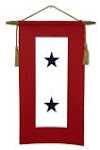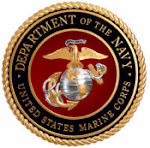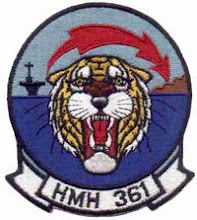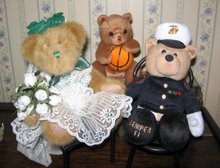WILSON LIED-- INVITE HIM /
(for book deals, cocktails, interviews, photo-ops)
Atticus Finch is no further ahead.
It is apparent, but not confirmed, that Special Prosecutor Patrick Fitzgerald has just spent two years investigating who did not commit a crime, or maybe who committed a non-crime.
He has decided that when the testimony of a powerful White House official contradicts that of a print or television journalist, the journalist is to be believed and the official must be lying. And/or that lyiing to a journalist about how much you know is an indictable offense. Or something like that.
Lewis "Scooter"Libby, top assistant to the Anti-Christ (or the Vice Anti-Christ, or something like that) has been indicted for doing some needless, idiot verbal tap-dance in the process of giving testimony that should never have been necessary had the most basic question about the Plame Name Blame Game been answered expeditiously-- was she covert? If not, no crime. No crime, no reason for a prosecutor to continue prosecuting, regardless of his low opinion of the players or the perceived dangers of being reckless with classified names. This does not mitigate the fact that lying under oath is criminally stupid and stupidly criminal, and if done, should be punished. That's why Oliver North was (temporarily) convicted. That's why Hillary Clinton was indicted and Bill Clinton went to jail-- oh, wait, that never happened.
The mysteries lurking on every side of the circuitous path by which we have arrived at the Libby indictment are legion, and well-covered by a host of wide-awake observers. Stephen F. Hayes at the Weekly Standard (author of The Connection, a blow-by-blow exposé of the long and intense relationship between Saddam Hussein's one-man government and Al-Qaeda) wrote a 13-page blow-by-blow account of the Wilson-Niger-Plame saga just before the indictment came down, which lays it all out clearly. This was followed by a close examination of how a "spooked White House" went knock-kneed in the face of a CIA leak-fest to deflect attention from its own Iraq intelligence failures. Hayes also provides a treatment of the CIA's general practice of "CYA" leaking (and possible prosecutions that could arise therefrom), as well as some well-deserved scrutiny of the once-Honorable Joseph C. Wilson the freakin' Fourth's own propensity for the Big Fib. Read Hayes because, as the song says, nobody does it better.
In his 13-pager on the path to prosecution, Hayes mentions a New York Times article on July 22 of this year which included a 19-point timeline of the (selected) major events in the story. Money quote from Hayes:
But there is one curious omission: July 7, 2004. On that date, the bipartisan Senate Select Intelligence Committee relased a 511-page report on the intelligence that served as the foundation for the Bush administration's case for war in Iraq. The Senate report includes a 48-page section on Wilson that demonstrates, in painstaking detail, that virtually everything Joseph Wilson said publicly about his trip, from its origins to his conclusions, was false. (emphasis added)
Or, as Hayes writes more succinctly on an earlier page, "It should be clear by now that the only one telling flat-out lies was Joseph Wilson."
Reflect on this: Hayes and other writers are prepared to state, in print, in widely circulated media outlets, that Joseph Wilson is a liar. Not "mis-statements", not "mis-speaking", not "inconsistencies"-- LIES. They have been writing about Wilson in these terms over much of the two years that this story has been under investigation. And Wilson, who has surfaced constantly in the effort to keep his name and victimhood on the front pages, has never taken legal action against a single one of those who have branded him LIAR. That's because when they do so, the journalists do not just toss out labels-- they have the goods, and they make the case.
One of the many things we have been waiting for as the Plame Name Blame Game has unfolded is the full story on what, if anything, will be the consequences for the first publication of the The Name by Robert Novak. Nothing, apparently. Novak has been fairly close-mouthed about his role in the investigation, but we now know that he testified early on and seems to have satisfied prosecutor Fitzgerald that it wasn't his job to keep this information under wraps. In my view, perhaps it was not Novak's legal obligation, but, based on his own version of the story, I think it was his moral obligation not to reveal Plame's name.
Novak has described how CIA official Bill Harlow warned him, in somewhat vague terms, that Valerie Plame "probably never again would be given a foreign assignment, but that exposure of her name might cause 'difficulties'." There seems to be a widely held perception that Plame's curtailed foreign career might be a result of Novak's revealing her name, but in fact Valerie Plame had been withdrawn from foreign service in 1997 because it was believed by the CIA that her identity was already compromised-- there was reason to fear that she had been 'outed' by traitor Aldrich Ames, who had been paid millions by the Russians to inform on Russian counter-spies (25 of whom were executed without trial, shot in the head while on their knees), and on numerous American under-cover operatives and their projects.
Novak seems to think that Harlow's warning was insufficiently serious to compel him to suppress Plame's name, especially since anyone seeking information about the subject of his article (Joe Wilson) would find his wife's name in publicly available sources like "Who's Who". Novak could also have mentioned Wilson's lengthy biography on the website of the Middle East Institute, a Saudi-funded think-tank, where Wilson was listed as an "adjunct scholar", and his wife was mentioned by name.
(In both cases she was "Valerie Plame"-- no one ever called her "Valerie Wilson" until well into the leak investigation, when she was getting more press coverage than her husband-- hmmmm. By the way, in the interim between the breaking of this story and the present, the Middle East Institute has re-done its website, where Wilson's bio is now considerably shorter, and Plame is no longer named. Too late, Joe.)
Nevertheless, as a moral question, I think Robert Novak should have erred on the side of caution regarding the name of anyone working for the CIA. Prosecutor Patrick Fitzgerald may have been a little melodramatic about it (and his Libby indictments perhaps reflect a slight excess of that) but he is correct in saying that you're not going to get good people to work in this vital security area if they cannot be guaranteed a reasonable degree of protection-- not just by the government, but by the citizenry at large.
The name of Valerie Plame was of no significance whatever to the substance of Novak's original article-- which was (it is often forgotten) a kid-gloves handling of Joe Wilson's claims, because as an isolationist/conservative Novak was also against the Iraq war. He was clearly interested in Wilson's case as possible evidence that the war was as lousy an idea as Novak had long been saying. All of this could have been accomplished without naming Plame's name-- Novak should have let somebody else put two-and-two together, with the help of "Who's Who", if they really wanted to. On general principles, it was wrong. Even if Plame had been covert, and a crime had been committed, Novak would not be the guilty party. But what he did was wrong anyway. It needs to be said.
As the Leakin' Libby drama plays out, it will be a task to keep the central immediate question in focus (Was Valerie Plame covert?) as well as the now-distant seminal question (Just how big a liar IS Joe Wilson?). I was a Sunday New York Times subscriber when Wilson's op-ed first appeared, and I admit I found his claims alarming-- I remember bringing attention to them in conversation, and wondering what the fall-out would be.
But I also remember being struck by the false note in the Wilson chorus-- that crap about "I spent the next eight days drinking sweet mint tea and meeting with dozens of people". Even as my brow furrowed about his accusations, I thought this tea-business sounded like some girlie travel diary entry, the sort that would be followed by something like, "It was all too, too exciting! I was simply nackered and could barely decide which shoes went with today's frock!"
Just how seriously did Joe Wilson investigate the single 1999 Iraq-Niger transaction attempt he was sent to confirm or deny? James S. Robbins was on the case two years ago at NRO, placing Wilson's moves under the microscope of Robbins' national security expertise, and issuing a withering critique.
Money quotes:
In 1981, Seyni Kountche, president of Niger, said that his country would "sell uranium even to the devil." He made good on his word, doing business with both Libya and Iraq, and funneling billions in profits into private slush funds to prop up his corrupt regime...it is useful to remind people, in an age of short-attention spans, that Niger and Iraq were part of a nuclear family dating back to the 1970s.
[Wilson] spent most of his time at the hotel — a fourth-floor suite at the Gawaeye, one report said. He was very open about his mission and its object, and began to take meetings near the pool...It is unclear with whom Wilson met. No Nigerien officials have admitted to attending those meetings. El Hadj Habibou Allele, who runs COMINAK, the major uranium-mining concern, stated he was never contacted. (emphasis added) For their part, the staff at the Gawaeye thought Wilson was a nice guy, and they nicknamed him "Bill Clinton" after his former employer.
It hardly seems credible that Wilson could have single-handedly investigated every aspect of the Niger-Iraq connection spending "eight days drinking sweet mint tea" and talking to people. If Niamey were nurturing such a relationship with Baghdad it surely would have been highly secretive. Uranium trade with Iraq was illegal after all; you could not expect to get a straight answer from anyone involved in it.
Wilson came away with no evidence that the 1999 uranium sale had taken place...this very narrow finding has been taken as proof that Iraq never even tried to obtain uranium. That was not the question Wilson was sent to Niger to answer, and his investigation certainly never came close to being that thorough.Dr. Robbins is a senior fellow in national-security affairs at the American Foreign Policy Council, and a Professor of International Relations at the National Defense University in Washington, DC. He worked briefly for the Pentagon in communications, because of his talent for communicating many things briefly, but left when a giant bureaucracy kept hitting him in the face.


















2 comments:
CSB, that's a very interesting characterization of why I left the Building -- and pretty accurate too. Thanks! Jim Robbins
ooh-rah, Jim!
Post a Comment